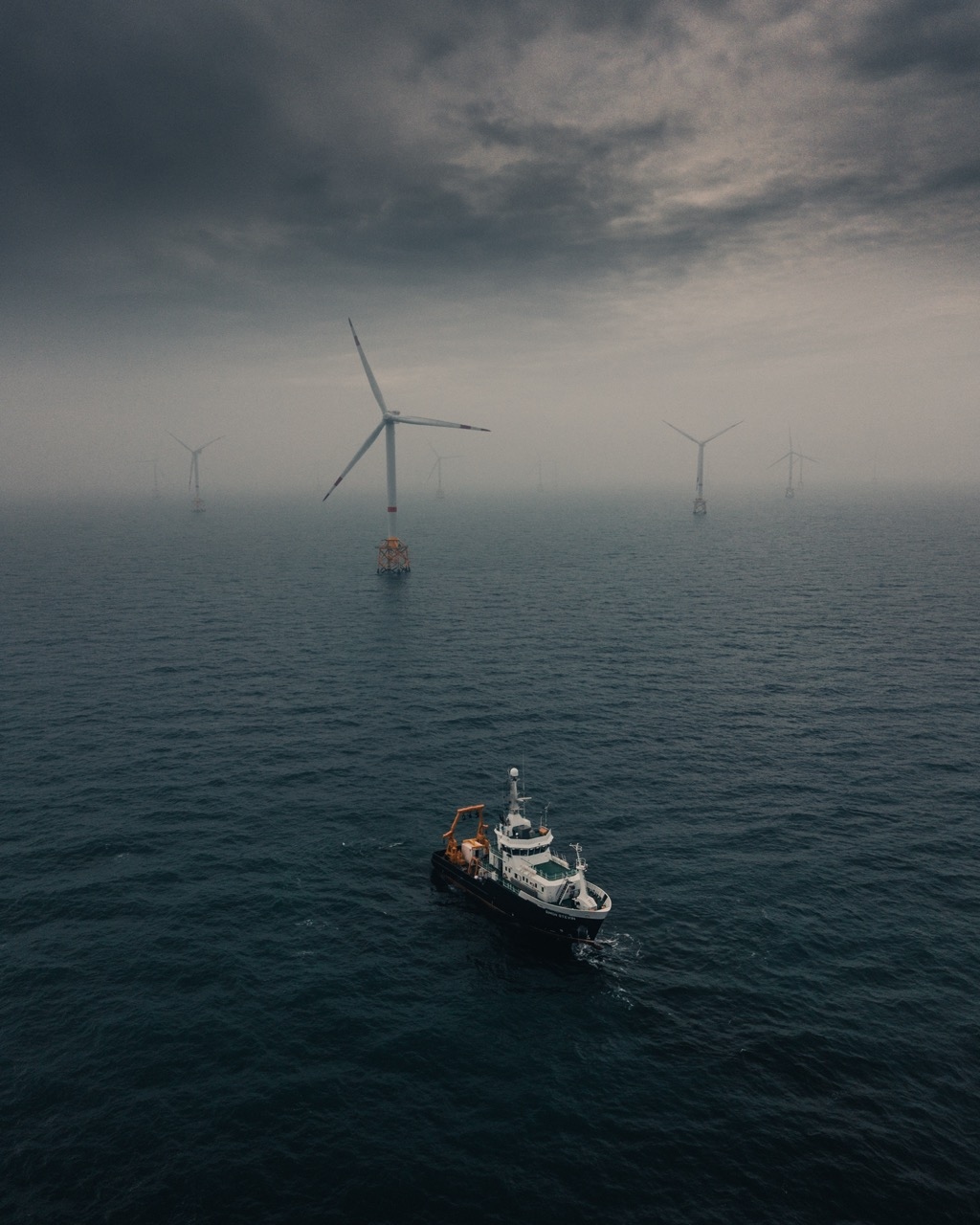
At the end of October, 42 climate scientists sent an open letter to the Nordic Council of Ministers, urging them to draw attention to the major ocean circulation change in the Atlantic. “A string of scientific studies in the past few years suggests that this risk has so far been greatly underestimated”, they write. ICOS Ocean stations in the North Atlantic monitor the situation closely and can provide near-real-time data on any possible changes in the AMOC strength.
The risk of the Atlantic Meridional Overturning Circulation (AMOC) collapsing is higher than previously estimated, warns a group of 42 climate scientists in their open letter to the Nordic Council of Ministers. The AMOC is a system of ocean currents that transports warm water into the North Atlantic and provides Europe its mild climate. The latest IPCC report in 2021 estimated with medium confidence that the AMOC “will not collapse abruptly before 2100, but if it were to occur, it would very likely cause abrupt shifts in regional weather patterns, and large impacts on ecosystems and human activities.” This estimation has been challenged by recent research which suggests that the passing of this tipping point is a serious possibility already in the coming decades.
Adaptation to a climate catastrophe of this degree is not possible
Regardless of whether the collapse happens in the next decades or the next century, the high probability of such an event needs to drive more climate action. “The purpose of this letter is to draw attention to the fact that only “medium confidence” in the AMOC not collapsing is not reassuring, and clearly leaves open the possibility of an AMOC collapse during this century. And there is even greater likelihood that a collapse is triggered this century but only fully plays out in the next.”, the scientists write. “Given the increasing evidence for a higher risk of an AMOC collapse, we believe it is of critical importance that Arctic tipping point risks, in particular the AMOC risk, are taken seriously in governance and policy”, they write. “Even with a medium likelihood of occurrence, given that the outcome would be catastrophic and impacting the entire world for centuries to come, we believe more needs to be done to minimize this risk.”
The collapse of the AMOC would be a severe climate catastrophe, resulting in major cooling in the Arctic region and warming of the surrounding regions. It would also lead to unprecedented extreme weather. “Adaptation to such severe climate catastrophe is not a viable option”, the signatories emphasise. “We urge the Council of Nordic Ministers to (a) initiate an assessment of this significant risk to the Nordic countries and (b) take steps to minimize this risk as much as possible.”
ICOS station sprovides near-real-time data from the North Atlantic
Carbon uptake and other ocean biogeochemical processes are closely monitored by ICOS stations in the North Atlantic. The observations are made onboard ships-of-opportunity (SOOP), which are vessels equipped with ICOS measurement stations that travel regularly on the North Atlantic.
“The North Atlantic is a hotspot for ocean carbon uptake, due in part to the existence of the overturning circulation or AMOC which stimulates both the biological and physical uptake of carbon in the region. One of the ICOS stations operated by the University of Bergen for many years crosses this region and will allow us to determine in near real-time the response of North Atlantic carbon uptake to any alteration in AMOC strength”, says Richard Sanders, Director of the ICOS Ocean Thematic Centre.
“A collapse of the AMOC would strongly reduce the uptake of CO₂ that occurs in the North Atlantic. We do not see any such trends in our data, however; the AMOC is still strong. Maintaining time series such as ours is critical for determining if and when a change happens”, says Are Olsen, Principal Investigator of the Tukuma Arctica ICOS Ocean station.
Read the full Open Letter by Climate Scientists to the Nordic Council of Ministers to here.
Read more about ICOS Ocean observations here.